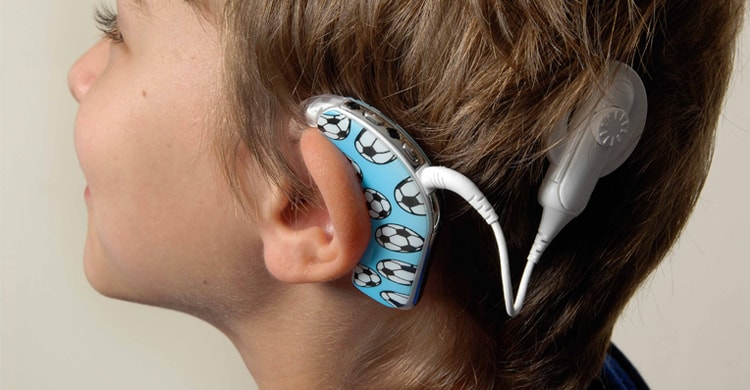
Cochlear implant surgery in India at affordable cost
11 March 2025
Hearing loss affects millions of people worldwide, significantly impacting their quality of life.
The reference population who face the dire need for these implants goes as far back as the second century BC.
Individuals who fall into the mild-to-moderate range of hearing loss can use hearing aids to amplify sound, while
those with severe or profound hearing loss may not find much help from it. Thus, here comes a technological marvel
that helps people hear by directly stimulating the auditory nerve, i.e., the cochlear implant.
Hearing loss affects millions of people worldwide, significantly impacting their quality of life. The reference population who face the dire need for these implants goes as far back as the second century BC. Individuals who fall into the mild-to-moderate range of hearing loss can use hearing aids to amplify sound, while those with severe or profound hearing loss may not find much help from it. Thus, here comes a technological marvel that helps people hear by directly stimulating the auditory nerve, i.e., the cochlear implant.
How Do Cochlear Implants Work?
The cochlear implants comprise two principal components:
The External Component: This includes a microphone, a speech processor, and a transmitter sitting behind the ear. The microphone picks up sounds and converts them into digital signals, which are then processed and sent to the internal implant from the external components.
The Internal Component: This is an implant surgically placed under the skin and includes a receiver and an electrode array. The receiver interprets digital signals and sends them to the electrode array located within the cochlea. This array stimulates the auditory nerve, sending signals to the brain for interpretation as sound.
Who can benefit from Cochlear Implantation?
Patients with severe to profound loss of hearing from one or both ears.
Users of hearing aids seldom benefit from them.
In children, cochlear implants could be conducted as early as possible, but the FDA approval for cochlear implant surgery is as low as 12 months of age.
Losses of hearing, such as those derived from sensorineural loss, are secondary to damage to the inner ear.
Benefits of Cochlear Implants
Improved Recognition of Speech: A much-improved increase is experienced in speech understanding under noisy conditions, which is the same as the unsatisfactory performance on messy prediction by many users.
Improved Communication: Improved hearing makes it possible to take part more easily in conversation and social activities than with lesser hearing.
Security and Awareness: Hearing alarms and traffic noises increase safety and awareness.
Quality of Life: Many recipients report an increased sense of independence and general welfare.
Considerations
While cochlear implants give a person a positive new lease on life, a few considerations have to be taken into account, such as :
Surgical procedure: This minor surgery is to implant the device. The risks include serious implications but are not limited to infection and device failure.
Rehabilitation and Adaptation: It requires training and some patience to understand the use of cochlear implantation.
Costs: Cochlear implants tend to be quite costly, but many health insurance plans or government programs provide relief for them and make them quite affordable if the patient has acquired deafness, while they do not cover congenital deafness in individuals.
Not a One Place Fits All Solution: Its effectiveness depends on factors such as age at which it was implanted, duration of hearing loss, and how neuronal health is.
Conclusion
Cochlear implants work wonders; they were and still are proven miracle devices for those with severe impairment of hearing. Many thousands of people are once again getting involved in this world of sound. If sound has become so mute to you or your loved ones, consulting with an ENT specialist like Dr. Satinder Singh regarding cochlear implants would be the first step toward recovering a hearing-wise effective and communicative life.



Few days back, got ulcers on the throat due to which unable to even inhale or eat or drink anything. Come to Dr. Satinder and really it was really a safest and quickest treatment i got and started normal diet within 3 days.